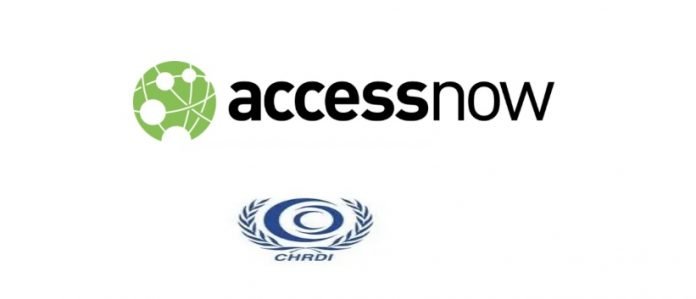By Amin Kef Sesay
Access Now and Campaign for Human Rights and Development International (CHRDI) have written to the Honorable Speaker of the House of Parliament, Dr. Abass Bundu, and Minister of Information and Communication, Mr. Mohamed Rahman Swaray, to express their concern over the soon-to-be passed Sierra Leone draft Cybercrime Bill.
In a letter dated 16 April 2021, Access Now and CHRDI, commended efforts by government and public authorities geared towards promoting a safe digital space for individuals and to better safeguard their rights.
They added that it is clear that laws such as the one in question are far-reaching and could result in human rights abuses, adding that more engagement with civil society, human and digital rights experts, and Parliament is therefore needed.
They argued that this law does not come into existence in a vacuum and that Sierra Leone has, in the recent past, decriminalized libel and sedition.
They stated that while State authorities are responsible for protecting the human rights of those in their territory and law enforcement should be enabled to assist victims of harmful cyber activities, they are deeply concerned about the practices by some States of asserting excessive control over the Internet under the pretense of ensuring national security, while disregarding international human rights law and the principles of an open, free, secure, interoperable and reliable Internet.
In the same vein, the Freedom Online Coalition (FOC), in a February 2020 statement, provided specific recommendations to States in this area, of which the following are directly relevant to the current discussions in Sierra Leone, that states need to comply with their obligations under international human rights law when considering, developing and applying national cybersecurity policies and legislation; that states need to develop and implement cybersecurity-related laws, policies and practices in a manner consistent with international human rights law, and seek to minimize potential negative impacts on vulnerable groups and civil society, including human rights defenders and journalists.
This includes building, where appropriate, supporting processes and frameworks for transparency, accountability, judicial or other forms of independent and effective oversight, and redress towards building trust. It may also include embedding the principles of legitimacy, legality, necessity or proportionality into policy and practice; that cybersecurity-related laws, policies, and practices should be developed through ongoing open, inclusive, and transparent approaches that involve all stakeholders.
They went on to note that they are concerned that the under-consideration Cybercrime Bill falls short of the government’s own strategy, including its position that “all measures taken under this Cybersecurity Strategy will be consistent with Sierra Leone’s international, regional, and national human rights obligations”.
The present cybercrime bill, according to them, grants sweeping powers to the executive arm of government without establishing a check and balance system that is essential to application of laws in democratic settings and is the very foundation of separation of powers.
For instance, section 2 of the act presently states that the President need only consult with the respective minister to institute frameworks that have an effect on the subjects of this law; and even then, the consultation remains optional. In effect, the President can issue legal frameworks on the wide topic of cybercrime without having to seek approval and scrutiny of the legislature. The same section further accords unilateral powers to the President to designate ICT systems as critical infrastructure.
Section 48 establishes the National Cyber Security Council that is littered with appointees, whose independence may be brought to question since their tenure, both in their qualifying capacity and in their capacity as members of the council, is reliant on the President’s discretion.
The Cybercrime Bill also outlines several legal processes without regard for the rule of law and protections for human rights. Making provisions such as in sections 5 (1) and 7(1) that provide for institution of court proceedings without expressly stating the need and importance of open, adversarial proceedings, and specifically the right to be heard, is dangerous territory and serves the possibility of arbitrary application of provisions that fall under those rules.
They argued that the Cybercrime bill, in addition, establishes imprisonable offences such as in sections 5(7), 7(5), 9(6), 10(6) and Part 5 (on offences) of the act, without defining the specific terms of imprisonment accruing to those offences. The bill leaves it to the Minister concerned to enact subsidiary legislation to address imprisonment terms and, in some cases, fines. It is not acceptable that the framing of punishments for crimes is sub-delegated for the executive branch to define; this has to be done by lawmakers in the main bill itself. Several provisions of the act also encroach on evidentiary law, which would be better dealt with in the country’s evidence laws to avoid conflicting application of laws.
Access Now and CHRDI are appealing to Members of the Parliament of Sierra Leone to desist from passing the Cybercrime Bill in its current form, adding that lawmakers must conduct a deeper review of the bill, with sufficient mechanisms to allow citizens and impacted communities –including human rights defenders and journalists among others – to be able to provide their views, along with soliciting further input from experts.




